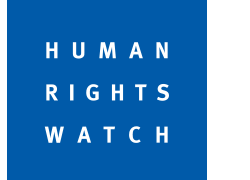Libya is still plagued by serious rights abuses, including arbitrary arrests, torture, and deaths in detention nearly a year-and-a-half after the overthrow of Muammar Gaddafi, Human Rights Watch said at a news conference for its World Report 2013.
It added that Libya’s new government has made strong commitments to uphold human rights, and it now needs to take further steps to establish the rule of law after four decades of dictatorship and repression.
Key priorities include getting all detainees out of militia hands and bringing them under state control and judicial review, building accountable security forces, and ending the long cycle of impunity by bringing to trial and punishing all those who commit the most serious crimes.
“Libya made notable advances over the past year, with elections and a new government that has committed itself to promote human rights,” said Joe Stork, deputy Middle East and North Africa director at Human Rights Watch. “But authorities urgently need to address the huge challenges that remain to ensure that the Libya of the future is far better than the Libya of the past. Too many Libyans still suffer from abuses by the government and by militias that operate outside the law.”
In its 665-page report, Human Rights Watch assessed progress on human rights during the past year in more than 90 countries, including an analysis of the aftermath of the Arab uprisings. The willingness of new governments to respect rights will determine whether the Arab uprisings give birth to genuine democracy or simply spawn authoritarianism in new clothes, Human Rights Watch said.





